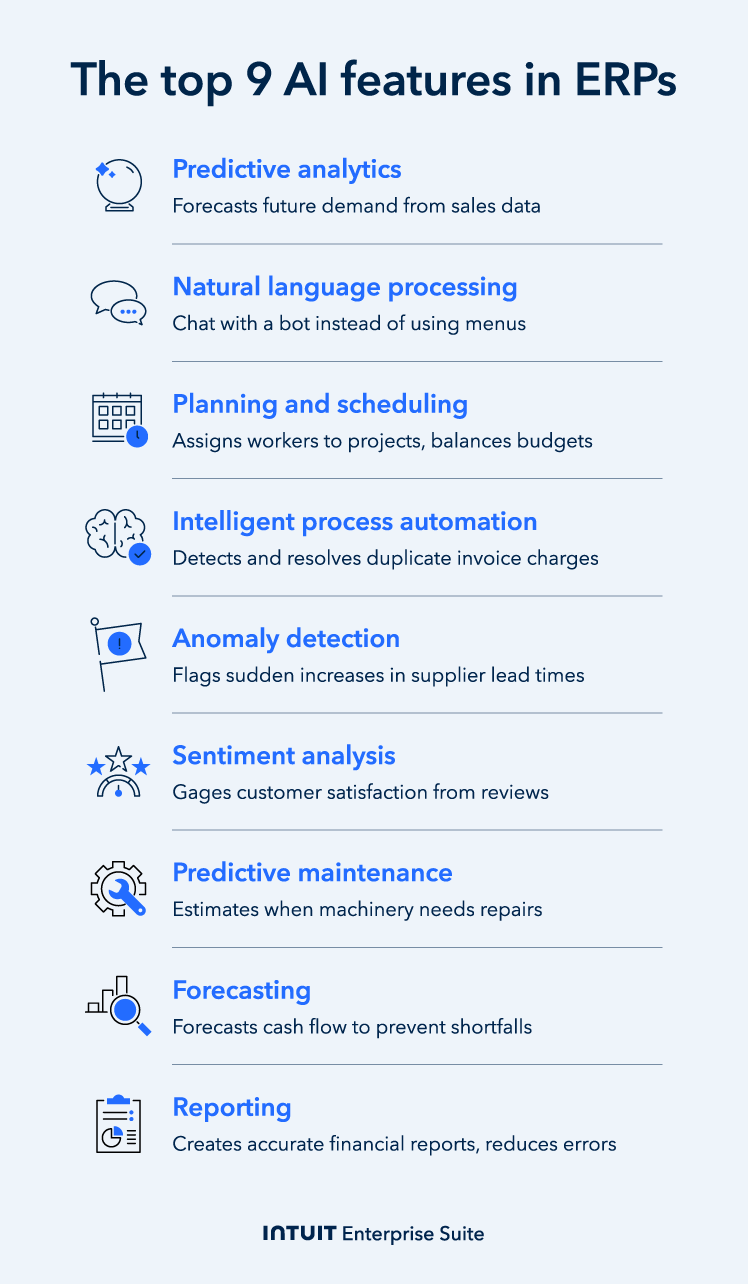Despite years of innovation in artificial intelligence (AI), many workflows remain stubbornly manual. Even with major investments in business management software, 54% of businesses say their current systems still depend on repetitive, error-prone tasks—a gap that slows decision-making and drives up operational costs.
AI-powered enterprise resource planning (ERP) software offers a turning point. By applying machine learning to forecasting, reporting, and process automation, these systems help leaders work faster and make more accurate, data-driven decisions.
Below, we’ll examine how leading vendors are embedding AI into ERP systems—and what these advances mean for the future of intelligent business operations.
Jump to:










